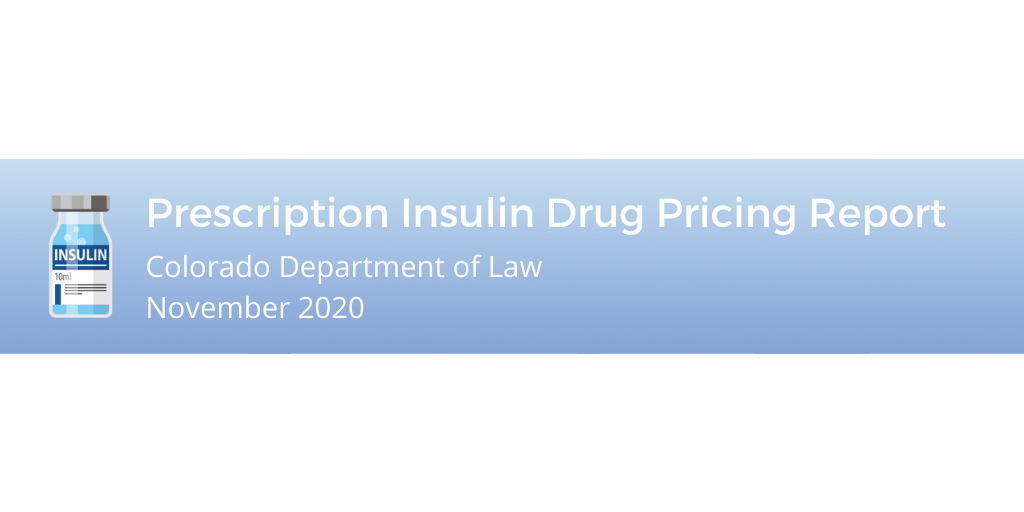The Colorado Department of Law released a report detailing the barriers Coloradans face in receiving the insulin they need and providing recommendations for how to make the vital drug more affordable and accessible.
Insulin prices rose by an inflation-adjusted 262% between 2007 and 2018 in Colorado. As a result, more than 40% of Coloradans who responded to a Department survey said they ration insulin due to cost at least once a year, and, in some cases where individuals lack access to insulin, they even choose to fast as a means of managing their blood sugar levels.
“As captured in this report, the rising price of life-saving insulin has painful consequences for Coloradans and their families,” said Attorney General Phil Weiser. “Our team estimates 73,800 Coloradans rely on insulin to manage their diabetes based on national statistics. Affordable access to insulin and other healthcare is an imperative, and the current COVID-19 pandemic only amplifies this need. It is also clear that we must take the necessary actions so that none of our residents ever has to ration their medication just to survive.”
Read the report here.
Lea el comunicado de prensa sobre el informe de insulina aquí.
Key findings
Key findings in the report include:
- Costs for Colorado patients more than doubled over seven years.
- Many Coloradans reported having difficulty accessing supplies as well, such as insulin pumps, which can cost as much as $8,000.
- Nearly 400 Coloradans from 44 of the state’s 64 counties responded to a survey the Department of Law conducted online in English and Spanish, and many reported struggling with the cost of insulin and other equipment they need.
- The mental and physical toll for diabetes patients has only increased as the COVID-19 pandemic has continued. Survey respondents reported job loss, furloughs, and salary reductions due to the pandemic, which have made survival even more difficult.
Recommendations
State and federal policy recommendations in the report include:
- Assure transparency in insulin pricing: A bill that passed in 2019 requires drug manufacturers or their representatives to disclose the wholesale acquisition cost of a drug when engaging in marketing activities with health care providers and other prescribers. While this bill was an important step, the report recommends more comprehensive, transactional price transparency reporting to the Division of Insurance from each link in the pharmaceutical supply chain, including manufacturers, PBMs, insurance carriers, and wholesalers.
- Expand mandatory coverage for diabetes supplies: Colorado should pursue additional study regarding cost and availability of diabetes supplies that are processed through insurance and should consider mandating coverage and capping copayments or coinsurance for such supplies.
- Join a bulk purchasing plan to increase purchasing power: Bulk purchasing gives the purchasers greater bargaining power than they would have on their own individually and may be one way for Colorado to reduce insulin costs. Many states have chosen this option, either beginning their own or joining multi-state pools.
- Change patent laws: Changing patent laws will allow for easier introduction of generic or biosimilar versions of insulin and will also stimulate greater competition amongst insulin manufacturers.
- Change drug purchasing laws at the federal level: Permit purchasing outside of the United States, which has higher prices than elsewhere in the developed world, as a strategy for providing access to lower cost supplies of insulin.
